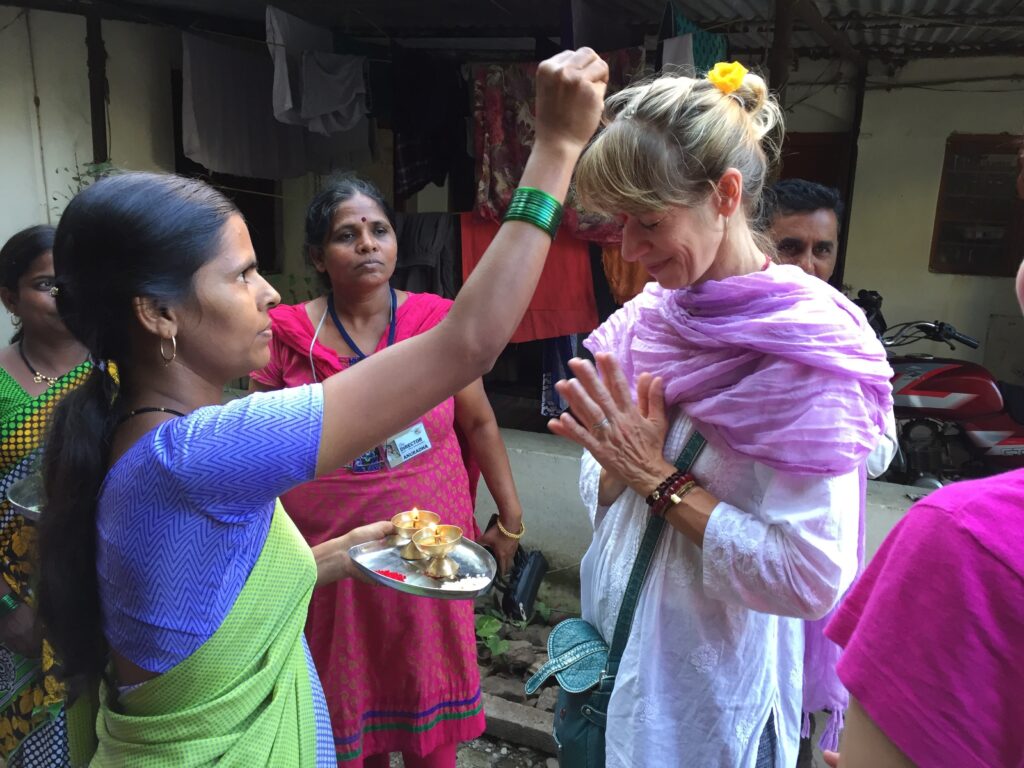GoPhilanthropic Travel was a socially conscious travel company encouraging a deeper understanding and connection to the world through travel. GoPhil Journeys offered a platform for global learning and involve engaging with a collection of effective small grassroots non-profits, committed to long-term work within their communities. GoPhil travel was very thoughtful and intentional during its years of work in the philanthropic travel arena — some key learnings are shared in the below article published in 2019.
“I would like to do more on my next trip. I want to do something that matters. I want to give back.“
This is a common sentiment capturing an ever-expanding trend for meaningful travel. Typically, the next thought that comes to mind is to look for a volunteer vacation, which may include building a school or helping to teach English in a developing country. In response to the mounting demand for more purposeful travel experiences, thousands of volunteering agencies have sprouted in the past two decades, contributing to what is now a multi-billion dollar ‘voluntourism’ industry.
Philanthropic travel is the lesser known, lesser understood version of a give-back holiday. This type of travel, often confused with a volunteer vacation, also combines exploring the world and ‘doing something good.’ GoPhilanthropic Travel has over a decade of experience in this very special space and we thought it would be helpful to remove some of the mysticism around the term and share what it means to us. We also hope to highlight that having a desire to give and travel can come from a very beautiful and very sincere place, but is not something to enter into lightly. Despite what may look dead simple (give where there is need), our intention to offer our resources while we explore the world requires careful planning, ample thought and cautious execution.
Philanthropic Travel: What Is It?
We would love to offer one definition, yet the reality is that there are as many interpretations as there are companies offering it. Our definition of philanthropic travel is: a journey that offers an opportunity for travelers to engage with, learn from and be a partner to people and programs committed to positive change in their communities.
These visits allow us to consider the context and challenges involved in ‘development work’ and then make informed philanthropic decisions. In simpler terms, we invite people to the doorsteps of inspiring change-makers and organizations who are courageously responding to some of the world’s greatest problems. They are fighting gender discrimination, child labor, human trafficking and a desperate lack of access to basic healthcare and education. Our form of philanthropic travel involves sitting down and being in the moment with these amazing human beings— to feel their positive energy and to learn about their approaches. The resulting philanthropy, which can come in many forms, flows organically from this.
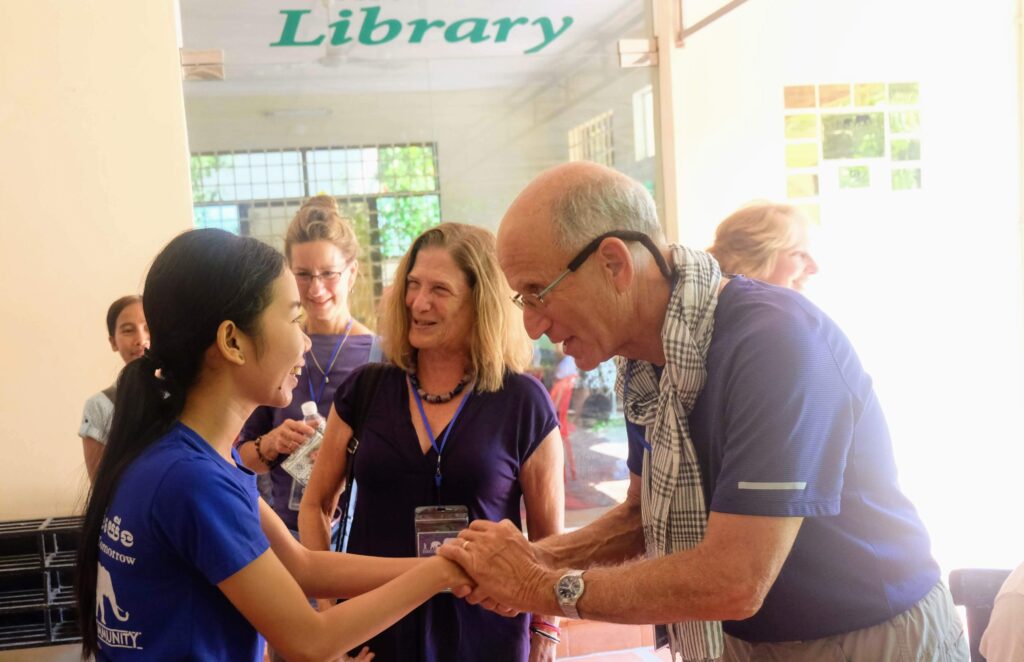
GoPhilanthropic was born from an enlightening yet disturbing volunteer trip I took to India — a trip that begged more questions than it answered. Donated items disappeared to a back room, our volunteering ‘fees’ were pocketed by the travel company organizing the trip, and the children we ‘served’ received disorganized, ill-prepared English lessons from a jet-lagged group of foreigners who hadn’t a clue where they were or what to do.
GoPhil was designed to be the antithesis of this. When we started running philanthropic trips in 2007, we began with a very basic goal – create trips that connected travelers with small grassroots programs so they could learn about their work and support them directly. We hoped to offer an alternative form of do-good travel much different from voluntourism – one that ensured funding made a clear impact and went to where it was supposed to go, where the people and programs visited truly benefited from the exchange and where a visitor came away more knowledgeable about solutions being applied to important world issues. There would be no buffer between a traveler who wanted to contribute and an organization that was helping people in need. We would facilitate direct person-to-person connection. End of story.
While these seemed like rather simple objectives, we quickly discovered that delivering this would be much more complex than we ever had imagined.
After many years facilitating philanthropic tours across SE Asia, India, Africa and Central America, we have learned some incredibly significant lessons – from the most euphoric to the most humbling, to shocking realizations of how uninformed giving (both from philanthropic and volunteer travel) can encourage horrific unforeseen abuses to human rights while we bask in the glow of our altruistic getaways.
Some experiences from our earlier, less experienced days, we wish we could completely redo — erase from the travel log, pretend they never happened. They normally involved handing ‘things’ out onsite — placing unnecessary focus on the exchange of something material, be it a water well, a classroom, a pair of shoes. What inherently hovers in the air during these situations, whether intended or not, is an expectation of gratitude. We now know that good philanthropic travel, goes well beyond any financial contribution or need for recognition. We now know that despite the best of intentions, we can actually do a great deal of harm when we inject money and influence in a delicate ecosystem that involves regional complexities we couldn’t understand looking from the outside in.
The following are some of GoPhil’s most significant philanthropic travel learnings — those that we hope will help amplify the possibilities for more global care, goodwill, and collaboration in a world that needs much more of it, while also avoiding the dangers not so commonly understood when one sets out to give back while exploring this beautiful planet and its people.
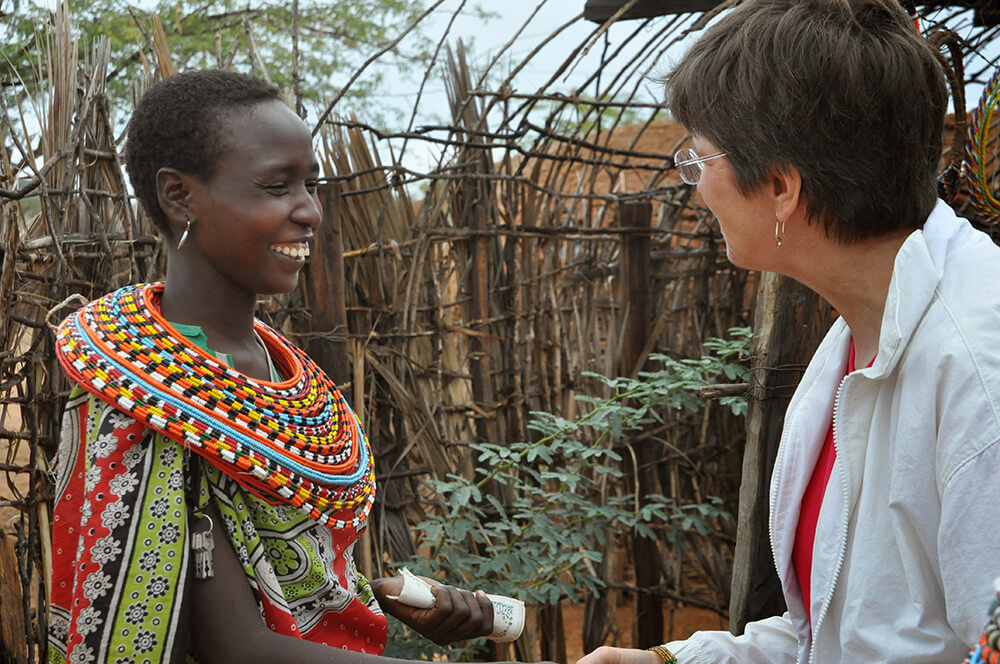 How Can You Ensure You Are Connecting With The Right Programs?
How Can You Ensure You Are Connecting With The Right Programs?
Identification takes time and experience
In order to properly navigate and identify honest, transparent and effective programs within the sea of NGOs in any given region, you have to be willing to commit a lot of time identifying who to assist. In some areas of the world, such as Siem Reap, Cambodia, Kathmandu, Nepal, or Antigua, Guatemala, there are hundreds of NGOs working in a small radius reportedly meeting the needs of communities lacking health and educational resources.
Unfortunately, some of these programs are not as forthright as one might want to believe. They can be managed by corrupt people or organizations accustomed to visits from foreigners — and hoping for funds, conduct a well-rehearsed song and dance to solicit donations. The layperson rarely has the ability to see through this charade.
Logically, most travel companies are forced to focus more on profit to stay competitive — the lengthy process of identifying and then building trusted relationships with NGOs is simply too time consuming to make sense. We know this first-hand because GoPhil initially started out as a travel company that offered philanthropic experiences. We thought finding ‘great people doing great things’ would be easy and that weaving visits into itineraries would be even easier.
Once we figured out that identifying authentic programs required an immense amount of research and relationship building (not to mention monitoring of funding afterwards), we made an early decision to put GoPhil Travel aside for many years to develop GoPhilanthropic Foundation, a 501c3 grant-making organization devoted to creating the proper processes and systems needed to achieve this.
In the early days our core team worked full-time on a volunteer basis and paid for all of our own travel expenses to make this happen. Why? Because we were passionate about facilitating meaningful philanthropic relationships. Finding the right people and programs was a non-negotiable essential. It still is. Now, by the time we are guiding a traveler to an NGO, we have typically spent anywhere from twelve to eighteen months working alongside that program to ensure that funding will have a positive impact long-term.
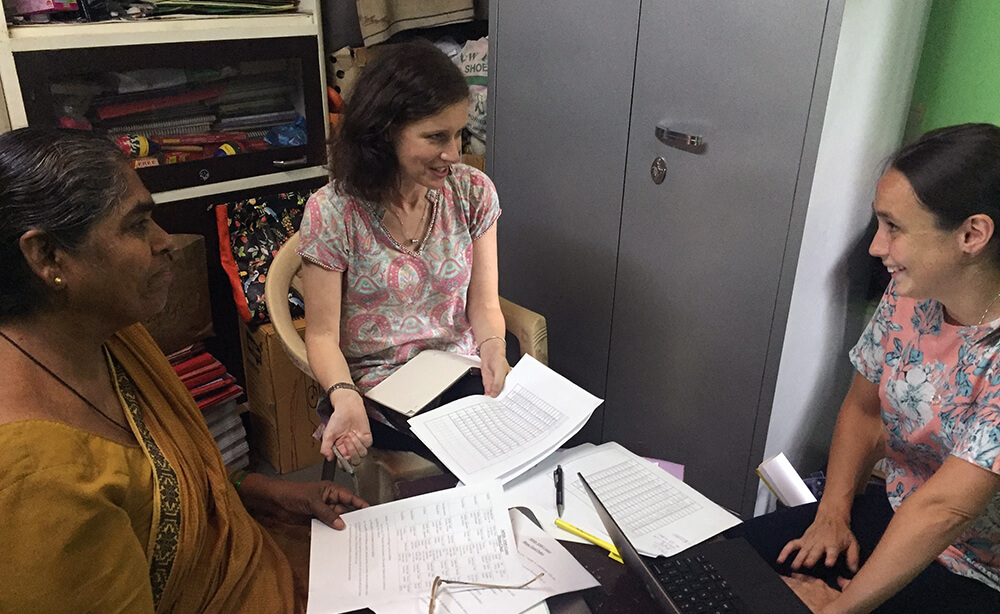 Philanthropic Travel is Not About ‘Doing For’
Philanthropic Travel is Not About ‘Doing For’
Our values are deeply rooted in the belief that people are at their best when they are realizing their own potential, when they are doing for themselves and where they can feel the joy and dignity that comes from their own accomplishments. As a result, our journeys do not involve ‘doing for’ anyone.
Our philanthropic relationships are about discovering, respecting and helping to expand the work that is already present and underway.
When we partner with an NGO, it is because they have found an innovative way to combat or prevent a certain problem or issue. We help programs scale their projects and ideas through an investment of funding, capacity building and in cross-learning/networking so resources can be leveraged. We have found a particular niche in being helpful during incubation stages where tools and seed money are critical in putting wind in the sails. Our belief is that this type of investment encourages more sustainable, longer-term growth at the local level where it matters.
This isn’t to say that helping others by volunteering our time is not beneficial — of course it is. Many of us at GoPhil are volunteers ourselves. The tricky part is when we venture to another country for a short period of time, where we don’t know the language, culture or have a grasp on the realities of the economics, political, social or environmental factors that could be driving everyday life challenges. Philanthropic travel involves gaining an understanding of these elements before inserting any help, financial or otherwise.
*Note: If you know for sure that volunteering is the experience you are looking for, we encourage you to connect with an organization that matches placements with needed skill sets, conducts background checks – one that doesn’t involve placements in orphanages or charges big fees for your stay, and preferably a volunteer experience that handles long- term (3 months or more) commitments required to really make a significant impact. A great place to start is learningservice.info
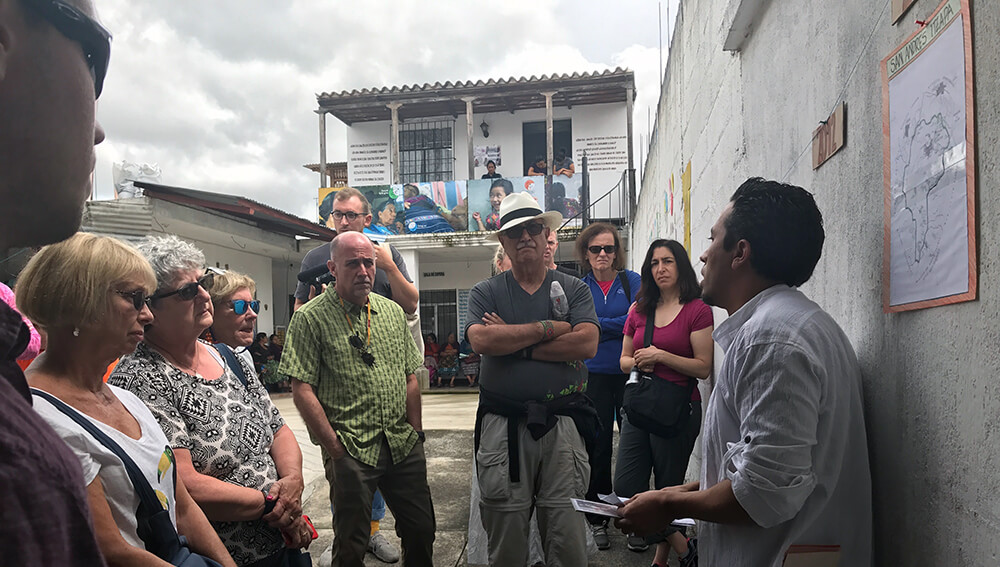
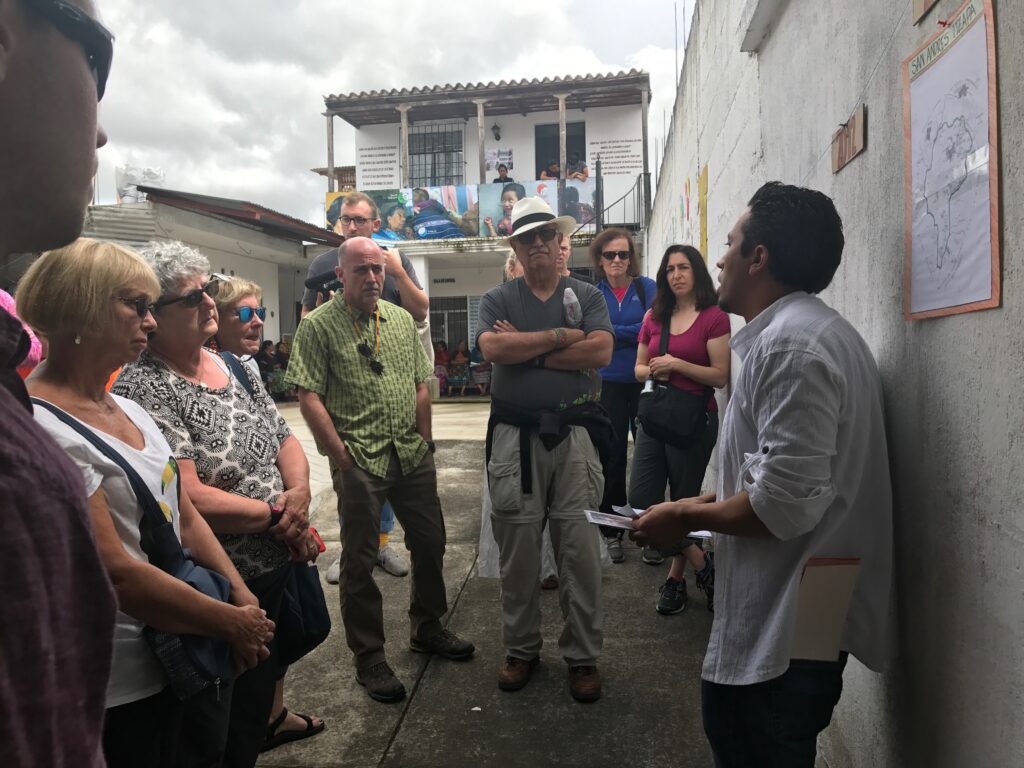 During our Journey to Guatemala, Julio from ASSADE explains the difficulty in providing adequate healthcare to marginalized Mayan villages.
During our Journey to Guatemala, Julio from ASSADE explains the difficulty in providing adequate healthcare to marginalized Mayan villages.
The ‘Giving’ Component — Our Priorities Or Theirs?
A few years ago we were so excited to learn how one inspired traveler wanted to help a partner program in Kenya. He had a particular affinity for technology and wanted to offer $20,000 to create a computer lab equipped with up-to-date desktops and all of the trimmings. He was very motivated about the prospect of adding the much needed IT element to a rural school that rescued girls from FGM and early marriage. But there was just one problem– the school didn’t have electricity.
Looking outside in with our foreign eyes, what we think an organization might need, might be very far from their priorities. Often referred to as ‘donor-driven’ philanthropy, we have to be very careful with our assumptions about what we think is lacking.
How do we help? What can we do to make a difference? These questions get to the very source of our desire to go and to give in the first place. The answer to these questions though lies in a thorough understanding of an organization itself, how it functions internally and a holistic perspective of its unique needs for the future. And what we mean by “unique” needs has to do with their own visions, desires and hopes for their work. How could we possibly appreciate the nuances of what this might be from a 2 hour visit. The most pressing needs are at times not the most obvious physical ones — like food, classrooms, computers, and books, but instead less tangible yet critical things like skill development and training workshops.
GoPhil Travel has the luxury of working in sync with GoPhilanthropic Foundation whose staff communicates regularly with partner programs to get a realistic understanding of the elements at play that affect these priorities. We then communicate these needs to our travelers who in turn have the opportunity to become partners in a carefully developed granting process. Funding is then monitored and evaluated and reports are shared with our donors so they receive a transparent view of the impact of their contributions.
Many first time travelers and donors deepen their relationships with a particular program even further by providing subsequent funding and by taking the opportunity to visit regularly. Eventually, the person-to-person connection that we dreamed of at the beginning was successfully realized, but the building blocks needed to be put in place first for this to happen.
Onsite Engagement — The Sensitivities
Once we have found an amazing program ticking all the boxes in terms of transparency, mission, and accountability, how can we possibly go wrong in inviting visitors to see their work first-hand? Unfortunately, there are lots of ways.
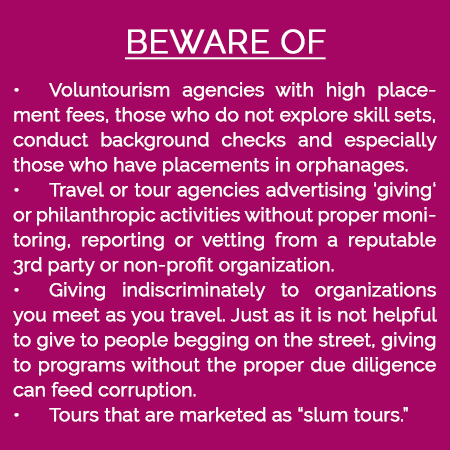 The Right to Privacy and the Protection of Children: Philanthropic travel can involve visiting people in extremely vulnerable situations or people who have lived through traumatic experiences. Entering into their villages, homes or newly found places of safety and protection should be treated with thoughtfulness so people do not feel as if they are on display.
The Right to Privacy and the Protection of Children: Philanthropic travel can involve visiting people in extremely vulnerable situations or people who have lived through traumatic experiences. Entering into their villages, homes or newly found places of safety and protection should be treated with thoughtfulness so people do not feel as if they are on display.
Unfortunately, philanthropic travel can quickly enter into the realm of being voyeuristic and self-serving. Slum tours for example, have become a marketing ploy that is nothing short of exploitative. These areas reflect people’s real lives – their homes, families, and businesses and a visit to them with no other purpose than to see the difficult conditions within which people live should be avoided at all cost. It is in places deemed as ‘slums’ that we at GoPhil have encountered some of the most innovative and passionate people, and collaborating with them is at the heart of our mission to go.
The frequency of visits to programs should be also taken into account and managed carefully with program staff. Over the years we have learned to take great care not to disrupt daily activities by parading through with groups of visitors or asking questions that compromise one’s right to privacy such as encouraging people to recount their of stories of abuse or pain.
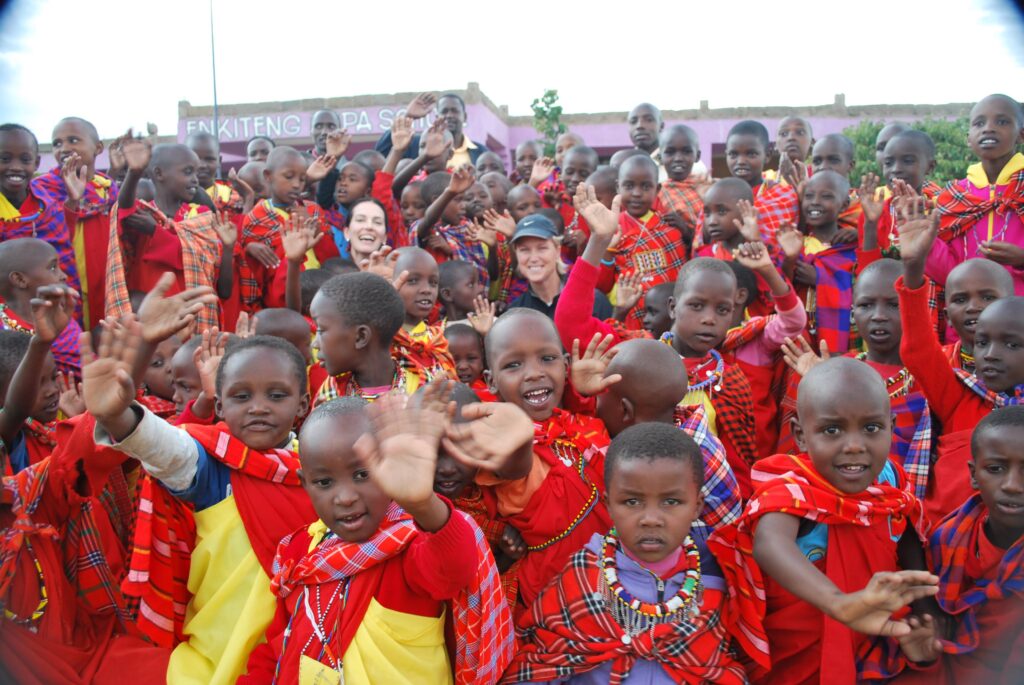
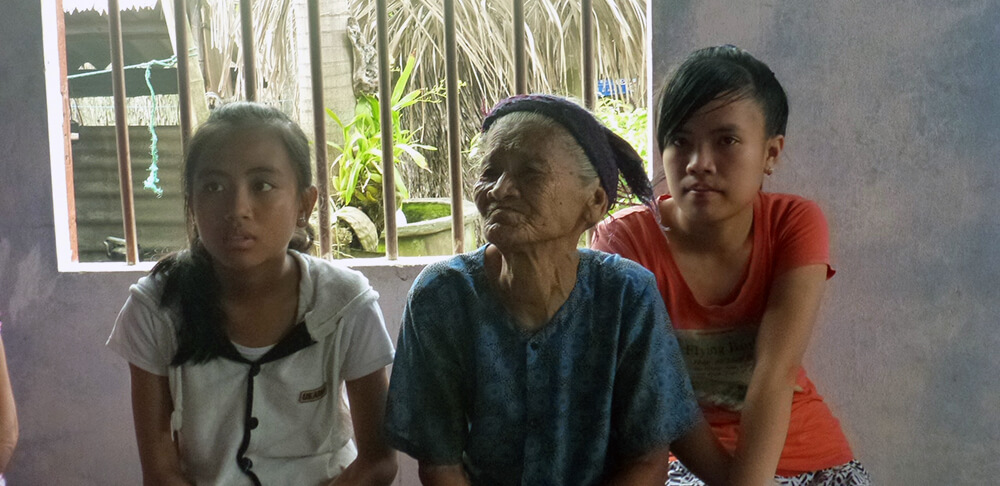
When it comes to visiting programs with children, we maintain strict policies that adhere to an NGO’s child protection policy. Playing with or engaging with children associated with any visited program should be vigilantly monitored. One major criticism of volunteer trips is that they commonly offer a traveler direct access to vulnerable children with very little experience required or proper background checks.
Photography and video can be a powerful way to share inspiring stories from around the world — stories that need and should be heard on a much greater scale. But in the moment, the camera can also be invasive and a barrier to listening. We have quite strict guidelines around taking pictures, especially with children, while we are engaging with programs on our journeys as it has the potential to draw attention away from the importance of what is being communicated, not to mention the compromise to a person’s right to privacy and dignity in story telling.
Last but not least, we advise against any models of philanthropic travel that center around offering material things during a visit. Handing out gifts or money can promote a concept of ‘haves and have nots’ and can also create a savior-like moment that undermines a person’s sense of worth. This is not to say we don’t provided essential materials to programs in need of them. We do — all of the time, from vehicles, to computers, to solar and water systems and school buildings.
But, when the onsite interaction is focused on the exchange of these things, the fundamentals of philanthropy quickly get lost — listening to the background and inspiration behind the need for the program, the strength it has taken to fight against injustices, the daily challenges a program might face, their stories of success despite the odds and their dreams and vision for a self-reliant future.
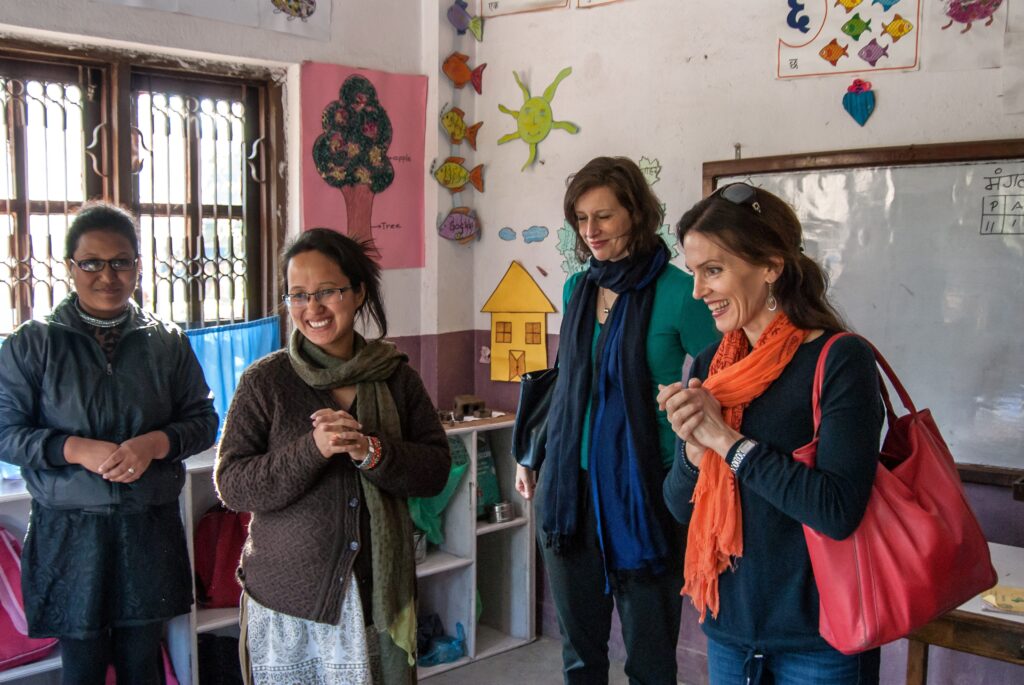
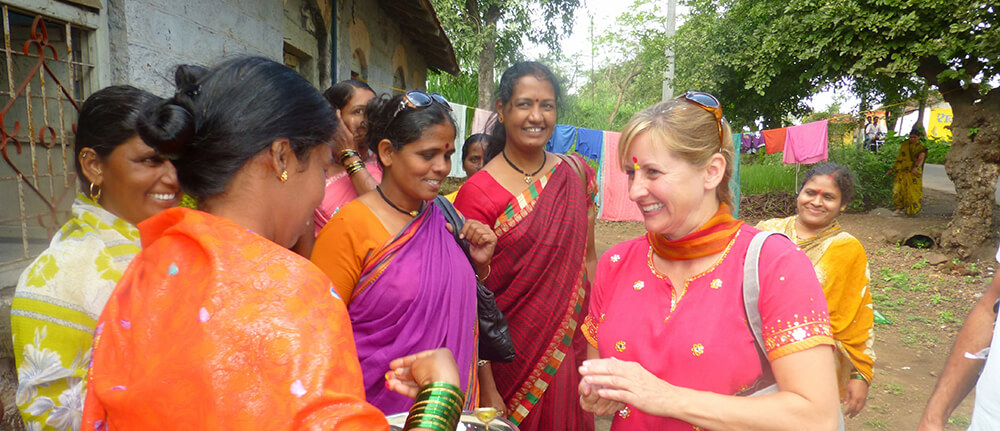
A Conduit for Global Good
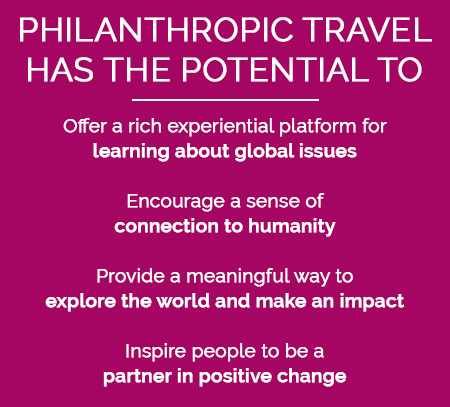 When the proper due diligence is taken from all angles — from identification of programs to careful management of onsite visitation, to supporting what programs want for themselves, philanthropic travel experiences can be a powerful catalyst for global good. Our differences as people melt into the ground and our common humanity becomes so evident that we can come away questioning why we place so much time and effort on building our individual lives as opposed to helping each other.
When the proper due diligence is taken from all angles — from identification of programs to careful management of onsite visitation, to supporting what programs want for themselves, philanthropic travel experiences can be a powerful catalyst for global good. Our differences as people melt into the ground and our common humanity becomes so evident that we can come away questioning why we place so much time and effort on building our individual lives as opposed to helping each other.
Something palpable seems to float in the air during these exchanges — a currency that far exceeds anything we can calculate or measure. The experience for both the individuals within the program and the travelers themselves can be profoundly moving, even life-changing experience. It’s within these moments, which we have found to be nothing short of transformative, that the giving and receiving naturally flows in both directions. A sense of synchronicity, not often found in our daily lives, is felt and we are left with a desire for more of it.
GoPhilanthropic Foundation was a US based non-profit that helped small community-based organizations provide access to education, health and human rights in impoverished regions round the world.


